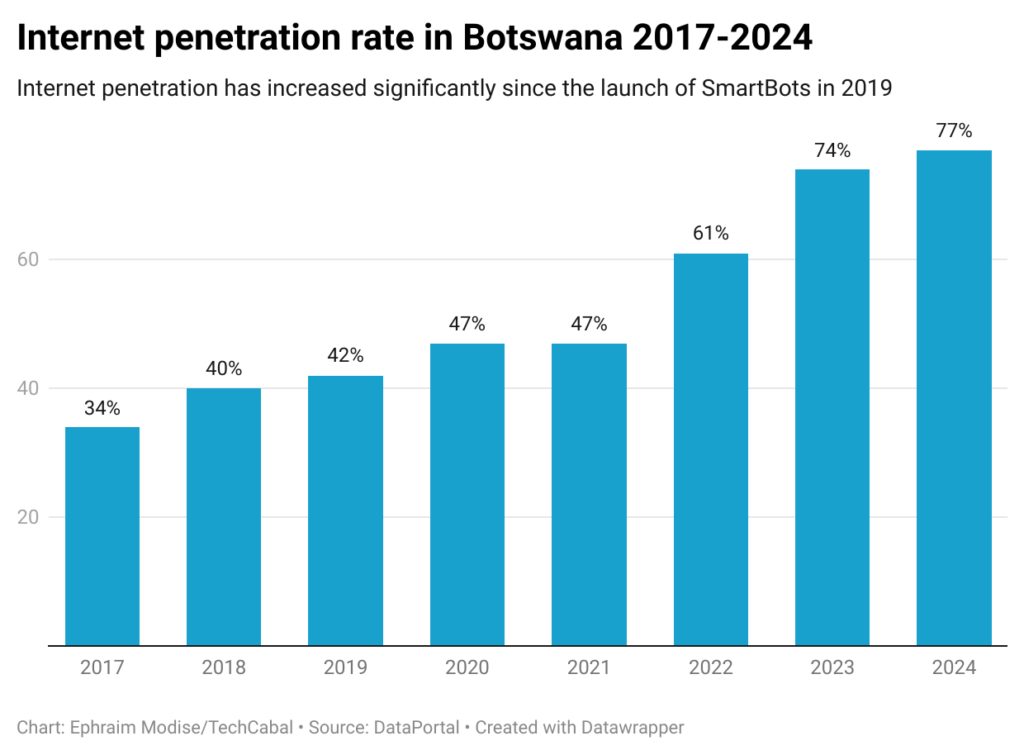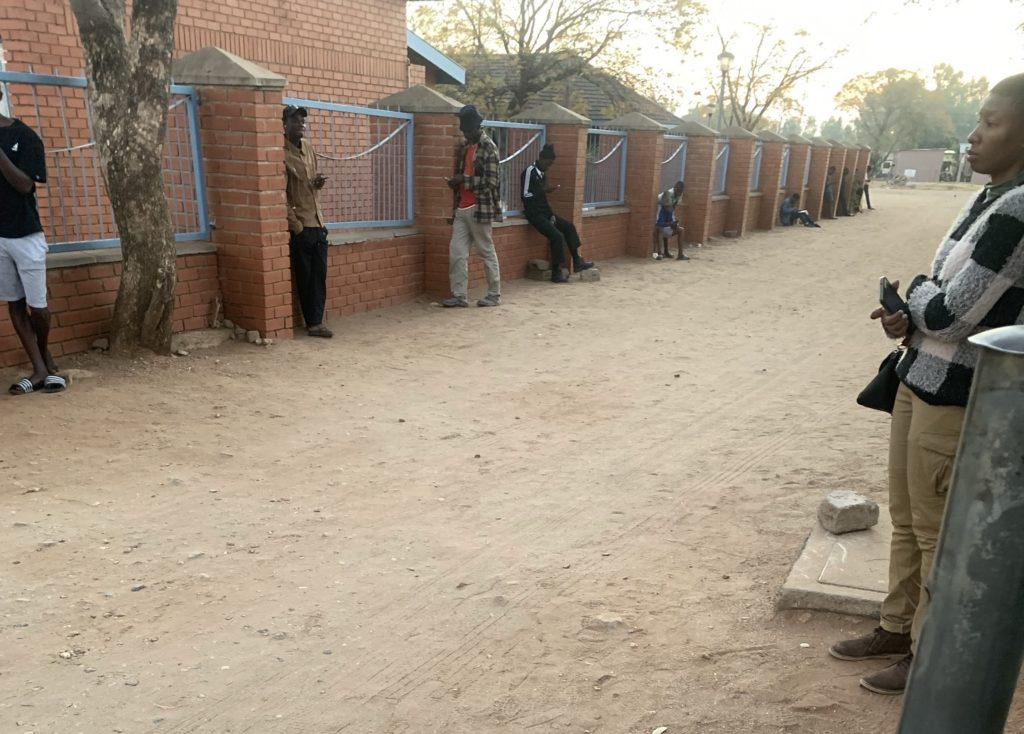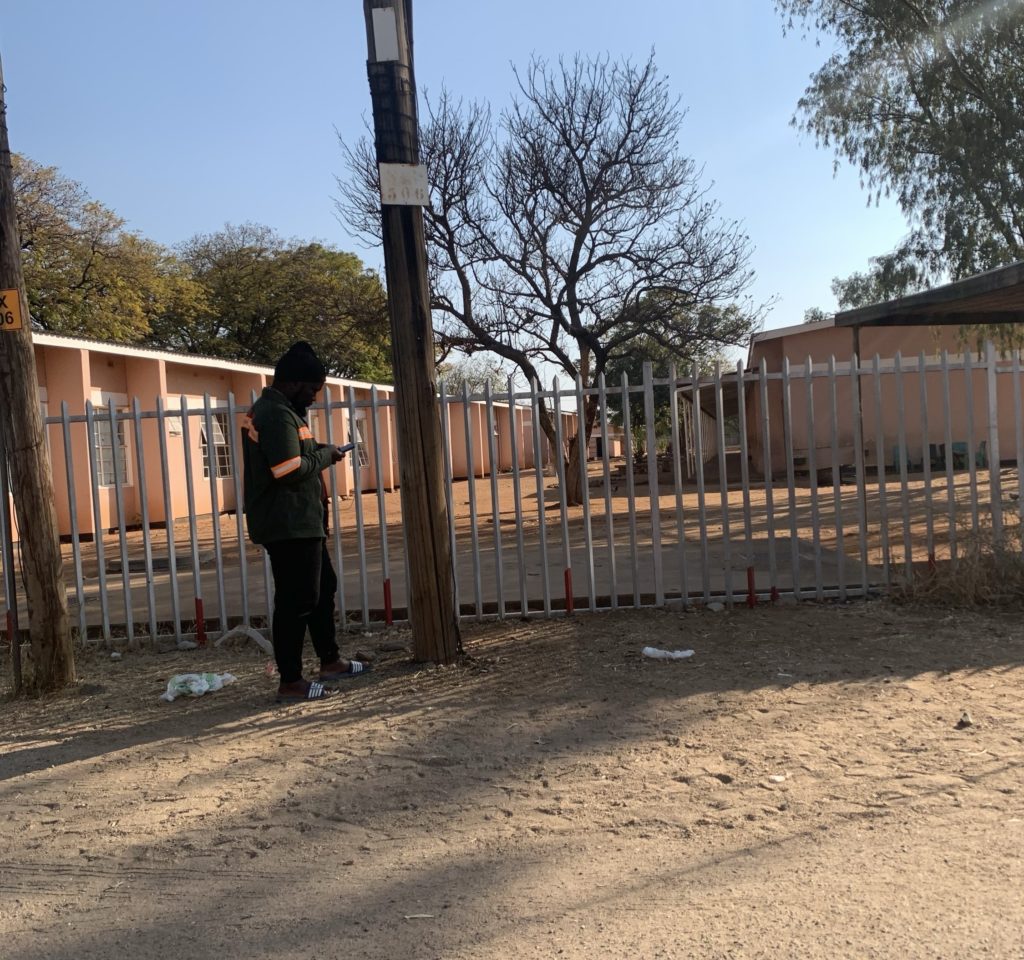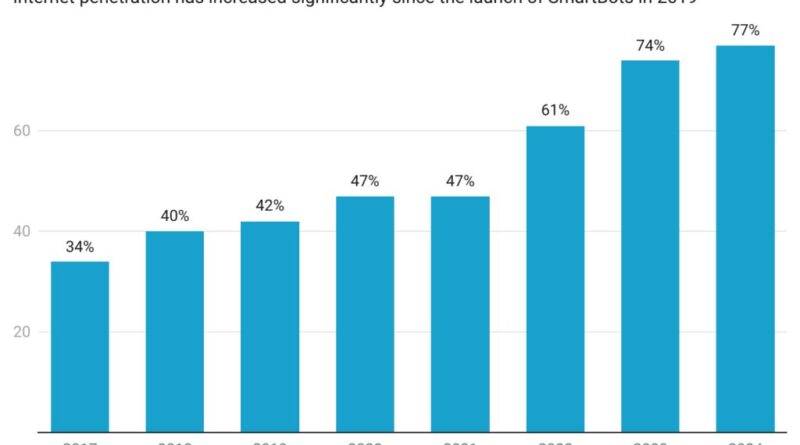Botswana’s free WiFi SmartBots are popular as internet prices bite
In Botswana, internet deals are expensive. 10GB of data can cost P1400 ($103) in a country where the minimum wage is P1500 ($111), cutting the number of young people despite the increased need for internet connection.
In 2019, Botswana introduced SmartBots, free WiFi routers in public areas. Five years on, the project has been a huge success, with over 1.6 million users. Internet penetration has also increased from 42% in 2019 to 77% in 2024, with access provided by SmartBots for low-income groups as a major contributor.
SmartBots routers—placed in public facilities including clinics, schools and courts (traditional fields) – has a speed of up to 10Mbps. More than 1,100 public buildings are equipped with SmartBots routers. On average, more than 130,000 users go online with SmartBots every day, and the government plans to connect more than 500 cities soon.
Botswana’s small, scattered population of 2.4 million makes providing mobile phone services expensive for telco companies, which pass the cost on to consumers.

*Kago and *Tumelo, 15-year-old Form 2 students, use SmartBots to access learning resources—that’s what they tell their parents. They spend most of their time watching football highlights on YouTube and reading TikTok. However, before SmartBots, young people could not access the World Wide Web as they do now.
“We are here every evening because the internet is free, there is no password, and it is close to where we live, so we can go in the evening,” Tumelo tells TechCabal.
“Our main goal is to connect all the residential areas in the country, then move on to the agricultural areas that are tight but isolated,” said Pontsho Pusoitsile, permanent secretary at the Ministry of Communications, Information and Technology.
The SmartBots user base has grown over the years and is very diverse, from students to adults. For young people, use cases for SmartBots include accessing social networks, applying for job opportunities, downloading music series and even forex trading, which has become popular among young people in Botswana. of rising levels of unemployment.

*21-year-old Daniel arrives at the Tshwaragano Clinic SmartBots hotspot at 5:30 pm after leaving work. He is there at least four days a week and can stay up late into the night surfing the internet. He uses the internet for social media, updates his phone software and pursues his side business, forex trading.
“The free internet is helpful because I’m learning forex and my friends say that if I’m smart enough, I can make money easily,” Daniel told TechCabal.
However, SmartBots are not without their problems. The service uses router-grade routers, so its speed depends on the number of people on the network. Most users focus on off-peak times, usually in the morning and evening when the most active users, students are at school or at home.

*The 55-year-old teacher usually arrives at the Monarch court SmartBots hotspot at seven o’clock at night when student traffic begins to spread. She uses WiFi at least 3 days a week to download updated textbooks for her 11-year-old daughter who is preparing for the Primary School Leaving Examination (PSLE).
“I want him to pass and eventually go to University, so this information I downloaded will help him a lot,” he told TechCabal.
Although SmartBots passwordless Wi-Fi is convenient, cybersecurity experts warn of the potential dangers of using an open network. The lack of password protection raises concerns about the vulnerability of users to cyber attacks.
Larona Olebile, a cybersecurity expert, said: “If a malicious party accesses the router, they can easily trick users as the service does not use a key or any other form of authentication.
Officials at the Department of Communications, Information and Technology did not immediately respond to questions about SmartBots’ cybersecurity concerns at SmartBots. However, users don’t seem to be concerned about security risks. Everything else is secondary as long as they can access the internet freely.
“We are like the children of other families,” said one user. Loosely translated, it means “We want to connect like the rest of the world.”
#Botswanas #free #WiFi #SmartBots #popular #internet #prices #bite
